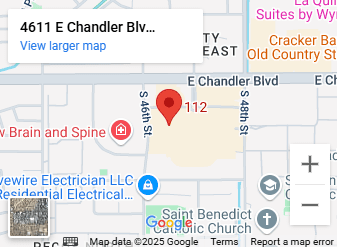Sell My Business Guide: Essential Steps for Success
Selling a small business demands strategic preparation, expert guidance, and meticulous execution to maximize value and ensure a smooth transition. Entrepreneurs often face uncertainty about valuation, legal requirements, and buyer engagement, which can prolong the process and erode potential profits. This guide delivers actionable steps to sell your business—from preparing financials and determining worth to confidential marketing, navigating due diligence, and planning post-sale transition. You will learn how to:
- Prepare your business for sale by valuing, organizing documents, and boosting attractiveness
- Leverage a professional broker’s expertise to streamline the transaction
- Market confidentially, qualify buyers, and secure a strong Letter of Intent
- Navigate due diligence, negotiate terms, and finalize the purchase agreement
- Understand tax implications and plan a seamless post-sale handover
With over a decade of regional expertise, our Our Expert Business Brokers in Arizona and the Southeast US empower you to sell efficiently and profitably.
What Are the First Steps to Prepare Your Business for Sale?
Preparing a business for sale involves clarifying its value, organizing critical documents, and enhancing overall appeal to prospective buyers. Establishing a strong foundation at this stage accelerates the sale process and supports a premium asking price.
How Do You Determine Your Business’s Value?
Accurate valuation defines the optimal sale price and builds seller confidence. Business valuation estimates economic worth by applying standardized methods to financial performance and market factors.
Common valuation approaches include:
| Valuation Method | Approach Description | Key Advantage |
|---|---|---|
| Asset-Based | Sum of tangible and intangible assets minus liabilities | Straightforward for asset-heavy firms |
| Income-Based (DCF) | Projected cash flows discounted to present value | Captures future earning potential |
| Market-Based | Comparison with recent sales of similar businesses | Reflects real-world transaction data |
Each method offers unique insights—asset-based suits equipment-intensive companies, discounted cash flow rewards consistent profits, and market-based aligns with industry benchmarks. Selecting the right approach and engaging a certified appraiser ensures reliable results and informs negotiation strategy.
Research and Application of Company Valuation Methods
This paper examines the theory and application of company valuation methods, concluding that the essence of valuation is the discounted valuation of future cash flows. It highlights that valuation is not a precise science, and multiple methods should be used for a comprehensive comparison due to their individual advantages and limitations.
This research directly supports the article’s discussion on various business valuation methods and the importance of selecting the right approach for accurate results.
Building on valuation clarity, the next crucial step is compiling your financial and legal documents.
What Financial and Legal Documents Should You Organize?
Organized documentation accelerates due diligence and builds buyer trust. Key records include:
- Complete financial statements for the last 3–5 years, including profit & loss and balance sheets.
- Federal and state tax returns covering the same period.
- Customer contracts, vendor agreements, and leases detailing obligations.
- Employee records and organizational charts to demonstrate staffing stability.
- Intellectual property registrations and pending applications.
A well-structured data room presenting these documents underscores transparency and readiness, positioning your business as a reliable opportunity.
How Can You Enhance Your Business’s Value Before Selling?
Pre-sale improvements strengthen buyer perception and justify a higher asking price:
- Improve profitability by reducing overhead and optimizing pricing.
- Strengthen management by documenting processes and training key staff.
- Refresh facilities or equipment to signal reinvestment and reliability.
- Expand customer relationships through loyalty programs or contracts.
Proactive enhancements translate into quantifiable metrics—higher EBITDA, diversified revenue streams, and solid customer retention—making your business more competitive in the marketplace.
Why Is Developing an Exit Strategy Crucial?

An exit strategy outlines your timeline, financial goals, and post-sale involvement, ensuring alignment with personal objectives and buyer expectations. By clarifying whether you seek full retirement or partial transition, you enable targeted marketing, appropriate valuation, and structured handover terms. A robust exit plan mitigates surprises, aligns stakeholders, and accelerates closing.
With preparation complete, engaging a qualified broker can further streamline the sale process.
Why Should You Hire a Business Broker to Sell Your Business?
What Does a Business Broker Do for Sellers?
A business broker:
- Conducts an independent business valuation to establish a realistic price.
- Prepares marketing materials such as confidential business reviews and teasers.
- Screens and qualifies prospective buyers to ensure financial capacity and fit.
- Facilitates negotiations on price and terms, minimizing seller risk.
- Guides both parties through due diligence and final purchase agreements.
By managing complex steps and maintaining confidentiality, brokers preserve operational stability and protect sensitive information during the sale.
The Role of Business Brokers in Selling Your Business
Business brokers serve as crucial intermediaries in the sale of a business, offering expertise in valuation, marketing, negotiation, and due diligence. They help streamline the complex sales process, ensuring confidentiality and maximizing sale proceeds for business owners.
This citation reinforces the article’s section on the benefits of hiring a business broker, detailing their key responsibilities and value proposition for sellers.
How Do You Choose the Right Business Broker in Arizona or Southeast US?
Selecting an ideal broker requires evaluating:
- Local market expertise and transaction history in Arizona and the Southeast US.
- Industry specialization and familiarity with your business sector.
- Professional certifications (e.g., IBBA accreditation) and years of experience.
- Communication style, fee structure, and service scope.
Assess multiple candidates through interviews and reference checks to confirm regional insight and proven success.
What Are Typical Business Broker Fees and Services?
Most business brokers charge a success-based commission ranging from 10% to 15% of the sale price, aligned with delivered value. Services commonly include:
- Comprehensive valuation analysis
- Confidential marketing and buyer outreach
- Buyer screening and meeting coordination
- Negotiation support and contract preparation
- Due diligence coordination and closing facilitation
Investing in a broker’s expertise often yields accelerated timelines and higher net proceeds compared to independent sales efforts.
Having engaged a broker, the next challenge is marketing your business without compromising confidentiality.
How Do You Market Your Business Confidentially and Effectively?
What Is a Confidential Information Memorandum (CIM) and Teaser?
A Confidential Information Memorandum (CIM) is a detailed package illustrating your company’s financial performance, growth potential, and market position without revealing its identity. A teaser is a brief overview highlighting key metrics and opportunity points. Together, they engage qualified buyers under strict non-disclosure terms.
Presenting a well-crafted CIM and teaser generates interest from serious prospects while preserving operational privacy.
Which Marketing Channels Work Best for Selling a Business?
Effective outreach combines:
- Industry-specific online marketplaces and broker networks.
- Private equity groups and strategic acquirers with relevant interests.
- Professional referrals from accountants, attorneys, and lenders.
- Discreet direct outreach to vetted potential buyers.
Diversifying channels increases buyer pool quality and accelerates transaction momentum.
How Do Non-Disclosure Agreements (NDAs) Protect Your Sale?
NDAs legally bind prospective buyers to confidentiality before accessing sensitive information. By requiring signed NDAs, you:
- Prevent premature disclosure to competitors or employees.
- Safeguard intellectual property and proprietary processes.
- Build trust in the negotiation process.
Secure NDAs before sharing CBR or detailed financials to maintain confidentiality and protect business value.
With marketing underway, it’s time to navigate the core stages of the sale process.
What Are the Key Stages of the Business Sale Process?
How Do You Qualify and Engage Potential Buyers?
Qualify buyers by verifying financial capacity, industry experience, and strategic alignment. Use preliminary questionnaires and confidentiality agreements to filter candidates. Engage qualified prospects with personalized presentations and site visits to assess fit and readiness.
Effective screening prevents wasted time on unqualified parties and focuses resources on serious buyers.
What Is a Letter of Intent (LOI) and Why Is It Important?
A Letter of Intent (LOI) is a non-binding summary of proposed terms—purchase price, payment structure, and key conditions. An LOI:
- Establishes mutual understanding of core deal elements.
- Sets exclusive negotiation timelines.
- Guides due diligence scope.
Securing an LOI demonstrates buyer commitment and clarifies transaction framework before investing in detailed review.
What Should You Expect During Due Diligence?
Due diligence is the buyer’s comprehensive examination of financial, legal, operational, and commercial aspects. Typical focus areas include:
| Due Diligence Area | Documents/Checks | Buyer Objective |
|---|---|---|
| Financial | Tax returns, audited statements, cash flow reports | Verify accuracy and profitability |
| Legal | Contracts, leases, IP registrations | Assess obligations and ownership |
| Operational | Employee agreements, vendor agreements | Evaluate continuity and risks |
| Commercial | Customer lists, market analyses | Confirm growth potential |
Organizing a virtual data room with labeled folders streamlines review and project management.
How Do You Negotiate the Sale Price and Terms Successfully?
Successful negotiation combines data-driven justification with flexibility. Strategies include:
- Backing price with valuation reports and comparable sales.
- Structuring earn-out or seller-financing provisions to bridge valuation gaps.
- Defining clear contingencies for closing (e.g., regulatory approvals).
- Maintaining open communication and leveraging broker expertise.
A balanced approach nurtures agreement without undermining asking price.
What Legal Steps Are Involved in Finalizing the Purchase Agreement?
Finalizing the sale involves drafting and executing:
- Purchase and sale agreement detailing assets, liabilities, and representations.
- Ancillary documents such as employment agreements, non-competes, and transition plans.
- Escrow or closing instructions governing fund transfer.
- Regulatory filings and license transfers.
Legal counsel coordinates document preparation and ensures compliance, leading to a binding closing.
Completing the transaction transfers ownership, but understanding tax implications is critical before final signatures.
What Are the Tax Implications When Selling Your Business?
How Do Asset Sales Differ from Stock Sales for Tax Purposes?
Asset sales transfer individual business assets and liabilities, triggering:
- Ordinary income tax on depreciation recapture.
- Capital gains tax on asset appreciation.
Stock sales transfer ownership of the entity, resulting in:
- Capital gains tax on share appreciation.
- Simpler tax treatment for the seller but potential implications for buyer’s balance sheet.
Understanding these distinctions enables sellers to choose the structure that optimizes after-tax proceeds.
What Capital Gains and State Taxes Should Sellers Expect?
Sellers may face:
- Federal capital gains tax rates up to 20%.
- Net investment income tax of 3.8% on certain gains.
- State income taxes varying by jurisdiction (e.g., Arizona up to 4.5%).
Effective planning accounts for combined federal and state liabilities to preserve value.
How Can You Plan to Minimize Tax Burden on Your Sale?
- Structuring installment sales to defer recognition of gains over multiple years.
- Utilizing qualified small business stock exemptions if eligible.
- Bunching deductible expenses to offset gains.
- Engaging experienced tax advisors to model scenarios.
Proactive planning aligns sale structure with personal financial goals and maximizes after-tax returns.
Tax Implications of Selling a Small Business; From Closing to Continuity: How to Manage a Successful Post-Sale Transition
Selling a business involves significant tax considerations, including capital gains and ordinary income, which vary based on asset versus stock sales. Furthermore, effective post-sale transition planning is crucial, as research cited by Harvard Business Review indicates that up to 60% of deals underperform expectations within the first two years due to weak transition management, often stemming from issues like over-reliance on the seller and poor documentation.
This citation supports the article’s detailed explanations of tax consequences and the critical steps required for a smooth post-sale transition, including potential pitfalls and the importance of proactive planning.
After addressing taxes, focus shifts to ensuring a smooth post-sale transition.
How Do You Plan a Smooth Post-Sale Transition?
What Steps Ensure a Successful Employee and Customer Handover?
Key transition actions include:
- Conducting joint meetings with new owners, management, and staff to align roles.
- Communicating changes to customers via coordinated announcements.
- Updating vendor and regulatory contacts with new ownership details.
How Can You Maintain Business Operations During Ownership Change?
Maintaining stability requires:
- Retaining critical staff under agreed employment or consulting arrangements.
- Documenting operational procedures and access credentials.
- Implementing a transition timeline with overlapping management support.
Sustained operations underscore business resilience and protect value.
What Are Common Challenges in Post-Sale Transition and How to Overcome Them?
Frequent hurdles include culture clashes, knowledge gaps, and system integrations. To mitigate risks:
- Develop a detailed 30-, 60-, and 90-day transition plan.
- Assign transition leadership roles and clear accountability.
- Provide training and ongoing support to new management.
Anticipating obstacles and applying structured solutions ensures continuity and long-term success.
What Are Common Questions About Selling a Small Business?
Below are concise answers to prevalent queries encountered during a sale.
How Long Does It Typically Take to Sell a Small Business?
On average, selling a small business spans 6 to 12 months—from initial preparation and marketing to closing—though complex deals or niche industries can extend this timeline.
How Do You Prepare Your Business Financials for Sale?
Prepare by cleaning up bookkeeping, reconciling accounts, standardizing reporting formats, and addressing irregular expenses. Organized financials enhance credibility and expedite due diligence, sell my business.
How Do You Find and Vet Qualified Buyers?
Leverage broker networks, industry associations, and professional referrals to identify prospects. Vet candidates through financial statements, background checks, and interviews under a signed NDA.
What Are the Benefits of Using a Business Broker vs. Selling Independently?
Working with a broker delivers superior market access, confidentiality management, negotiation expertise, and transactional coordination—often resulting in faster sales and higher net proceeds.
What Documents Are Needed for Due Diligence?
Essential due diligence documents include financial statements, tax returns, contracts (customer, vendor, lease), intellectual property registrations, insurance policies, and organizational records.
Successfully selling your small business requires disciplined preparation, strategic marketing, and expert negotiation. By following these essential steps—preparing your company, engaging skilled brokers, protecting confidentiality, navigating due diligence, understanding tax impacts, and planning a smooth transition—you will achieve a profitable exit aligned with your goals. Partnering with seasoned professionals who specialize in Arizona and the Southeast US ensures your sale maximizes value, reduces risk, and transitions ownership seamlessly. Vertrauen you to guide you every step of the way toward a successful business sale.




